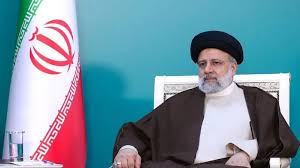

The news of death of the Iranian President Ebrahim Raisi has sent shockwaves around the world after the helicopter he was traveling in crashed in a mountainous region of Iran. Here are the key details surrounding the incident:
The helicopter carrying President Raisi and other officials crashed in a remote, forested area amid poor weather conditions.
The wreckage was discovered early Monday after an overnight search in blizzard conditions.
All passengers, including Raisi and Foreign Minister Hossein Amirabdollahian, were said to have been killed.
Several countries expressed concern and offered assistance.
The White House reported that U.S. President Joe Biden had been briefed on the crash.
China expressed deep concern, while the European Union offered emergency satellite mapping technology to assist in the aftermath.
Iranian Vice President Mohsen Mansouri and state television confirmed Raisi’s death.
Supreme Leader Ayatollah Ali Khamenei reassured the nation that there would be no disruption to state affairs.
President Ebrahim Raisi:
Raisi, 63, had served nearly three years as president and was a key figure in Iran’s conservative and hardline political factions.
Before his presidency, Raisi was the chief justice and was considered a potential successor to Supreme Leader Khamenei.
During his tenure, Raisi enforced strict morality laws, led a severe crackdown on anti-government protests, and was a staunch negotiator in nuclear talks.
The Helicopter:
The helicopter was a U.S.-made Bell 212.
State media reported that images from the crash site indicated the helicopter collided with a mountain peak, though the exact cause remains unconfirmed.
Rescue Efforts:
Rescue teams faced harsh blizzard conditions and challenging terrain to locate the wreckage.
The head of Iran’s Red Crescent, Pirhossein Kolivand, confirmed no signs of life were found at the crash site.
Nation in Mourning:
State TV halted regular programming to broadcast prayers for Raisi.
The national broadcaster covered widespread prayers and mourning ceremonies held across Iran.
more recommended stories
 Somaliland Pursues Peace: First POW Exchange with Puntland Completed
Somaliland Pursues Peace: First POW Exchange with Puntland CompletedPresident Irro’s Dialogue-Based Approach Gains Momentum.
 From 1960 to Today: Somaliland’s Unbroken Case for Statehood
From 1960 to Today: Somaliland’s Unbroken Case for StatehoodSomaliland’s Foreign Minister Reaffirms Sovereignty, Urges.
 Gogol or Goodbye? Somalia’s Last Opportunity for Federal Reconciliation
Gogol or Goodbye? Somalia’s Last Opportunity for Federal ReconciliationBy Abdirahsid Elmi & Mohamed Musa.
 Somalia’s Secretive Oil Deal with Turkey Sparks Outrage, Deepens Political and Security Concerns
Somalia’s Secretive Oil Deal with Turkey Sparks Outrage, Deepens Political and Security ConcernsMogadishu – Somalia’s parliamentary Natural Resources.

